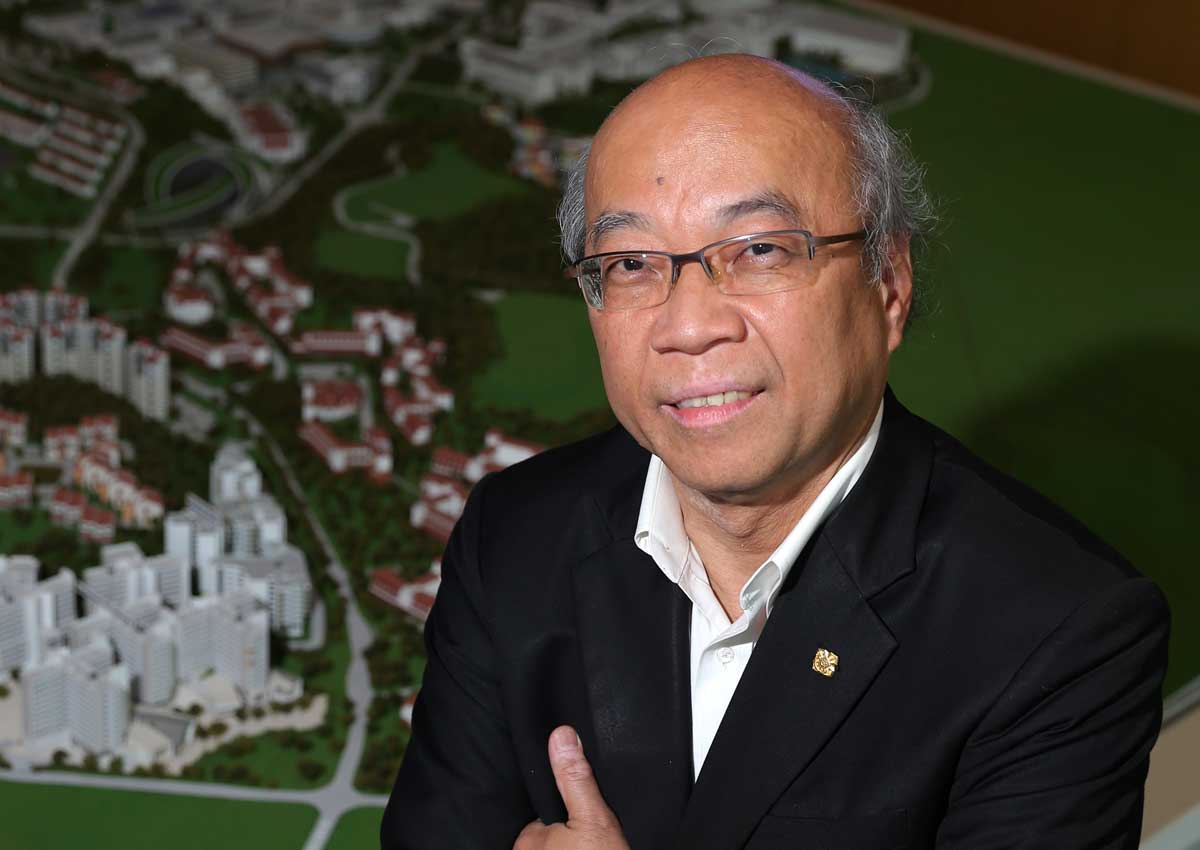As a primary school pupil in the 1960s, Er Meng Hwa spent many of his days helping his father at their fresh-fish stall near the Singapore River.
The ability to gut fish and pick out the choicest cuts at the market is probably not one of the talents you would associate with a professor of engineering, but being a fishmonger gave him the kind of hands-on learning one can’t get in school.
And that eventually led Professor Er, 60, vice-president of international affairs at Nanyang Technological University (NTU), to engineering innovations that have transformed people’s lives.
Today, he stands alongside Albert Einstein, Steve Jobs and other luminaries honoured in a London exhibition of the greatest engineers the world has ever seen.
He is the only Singaporean among 126 people who was honoured in a recently launched exhibition of the world’s most influential engineers at the new London headquarters of Britain’s Institution of Engineering and Technology.
Last year, he was also awarded a medal of excellence by The Institution of Engineers, Singapore, and The Institute of Electrical and Electronics Engineers in the United States, for major contributions to research and education while holding key appointments at NTU.
In his younger days, he enjoyed helping his mother in the kitchen, happily analysing such culinary considerations as how much salt to add and how to mix the salt evenly in the food.
“It’s a bit like engineering – you can experiment on the temperature, the duration, and sometimes you can overcook things.”
At school, however, Prof Er did not always do well. It was only at Tuan Mong High School that he experienced a turning point from a “naughty” kid to a diligent one after getting a bad report card. He later became head prefect.
Subsequently, his stint in the Singapore Armed Forces helped set a direction for his career.
As a signals officer, he gained an appreciation of both the theory and practical challenges of operating signal sets in the field, and it reinforced his belief that engineering was a good choice for him. He went on to study engineering at the National University of Singapore.
His skills in solving real-world engineering problems were further honed at Hewlett-Packard, where, as an engineer in charge of production lines, he was given the freedom to make decisions on the ground to improve efficiency.
“We were given the full responsibility even to redesign the circuits if necessary,” he said.
By the time Prof Er found himself at the University of Newcastle Australia for his doctoral research in 1982, engineering was but second nature to him.
He developed a novel computer program that helped submarines filter out surrounding noise in order to quickly and accurately identify target objects, such as enemy subs, in any direction.
Part of his work was patented in 1986, a year after he received his doctorate. The techniques he developed have wide applications today, such as reducing interference in the modern communications systems that keep society humming.
But his initial approach to the problem did not end well. After almost four months of hard work with computer simulations and data analysis, it finally dawned on him that it was not going to work.
“I decided to just throw it away,” he said, and to tackle the problem with a different mathematical formulation.
He also signed up for a course on an engineering topic called functional analysis, but found himself utterly lost in the jumble of mathematical equations on the blackboard.
When he realised it was because he lacked prior knowledge of something called geometric analysis, he bought the textbook and caught up with the class, eventually scoring a distinction in the exam.
After he joined the faculty at NTU, Prof Er took pains to ensure that his students have a solid foundation in the fundamental principles of engineering, which he said is important for breaking new ground. Otherwise the students “try to jump straight in without understanding the basics”.
But being a good engineer goes beyond just being good at engineering.
Prof Er, who won singing competitions in school and has designed the logos for some of NTU’s schools and research institutions, said: “It deals with not just machines but also people and society. We really need creative talent to come into the engineering profession.
“Even in writing a computer program, you need a certain elegance. It’s not just a matter of writing the code but how to make the code run efficiently and be free of bugs.”
linyc@sph.com.sg

This article was first published on July 11, 2016.
Get a copy of The Straits Times or go to straitstimes.com for more stories.






